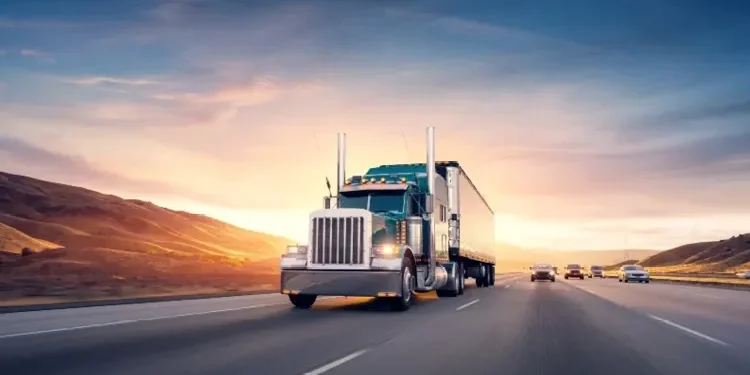In the trucking industry, having access to reliable and well-maintained vehicles is crucial to running a successful business. However, purchasing trucks and related equipment can be a significant financial burden, especially for small businesses or owner-operators. This is where Trucking Finance Loans come into play. These specialized loans offer an affordable way to finance trucks and equipment, helping businesses grow without depleting their capital.
In this article, we’ll explore the ins and outs of Trucking Finance Loans, including their benefits, how they work, and tips for choosing the best loan for your business needs.
What Are Trucking Finance Loans?
Trucking Finance Loans are financial products specifically designed to help individuals or businesses in the transportation industry purchase trucks, trailers, and other related equipment. These loans cater to trucking companies, fleet owners, and independent owner-operators who may need assistance to acquire or upgrade their vehicles without paying the entire cost upfront.
With these loans, borrowers can finance new or used trucks, trailers, or repair and maintenance costs, ensuring that their fleet remains in top condition. This type of loan is essential for businesses looking to expand their operations or replace outdated vehicles without compromising their cash flow.
How Do Trucking Finance Loans Work?
Trucking finance loans generally work similarly to other equipment financing options, where the borrower receives a loan to cover the purchase cost of the truck(s) or equipment. The business then repays the loan through scheduled monthly installments over a specified period, which can range from a few years to a decade, depending on the loan agreement.
These loans often come with varying interest rates, terms, and conditions, influenced by factors like the borrower’s credit score, the age and type of equipment, and the lender’s requirements. In many cases, the truck or equipment being financed serves as collateral, reducing the risk for lenders but also posing potential repossession risks if payments are missed.
Key Components of Trucking Finance Loans
- Loan Amount: The amount borrowed typically covers the full or partial cost of the truck or equipment.
- Interest Rate: Rates can be fixed or variable, depending on the lender and loan type.
- Repayment Term: Terms usually range from 12 months to 10 years.
- Down Payment: Many loans require a down payment, typically between 5% and 20%.
- Collateral: The truck or equipment itself often acts as collateral for the loan.
Benefits of Trucking Finance Loans
Trucking finance loans provide several advantages to trucking businesses, especially those looking to expand or update their fleet. Here are some key benefits:
1. Improved Cash Flow
Instead of depleting your working capital to purchase trucks outright, a trucking finance loan allows you to spread the cost over a longer period. This means you can keep cash in hand for day-to-day operational expenses, such as fuel, payroll, and maintenance.
2. Access to New or Upgraded Trucks
Whether you’re a new trucking company or an established business looking to upgrade its fleet, trucking finance loans give you access to modern, fuel-efficient trucks that meet your business needs. Newer vehicles also tend to have fewer breakdowns, reducing maintenance costs and downtime.
3. Tax Benefits
In many cases, the interest paid on Trucking Finance Loans is tax-deductible, and the depreciation of the truck can also provide tax savings. Always consult with a tax professional to understand how loan financing impacts your specific tax situation.
4. Flexible Loan Options
With various loan products available, borrowers can find options tailored to their specific needs, including loans for new or used trucks, bad credit loans, and flexible repayment terms. This flexibility makes it easier for businesses of all sizes to find the right loan solution.
Different Types of Trucking Finance Loans
When considering trucking finance loans, it’s essential to understand the different types of financing available. Here are some of the most common options:
1. Traditional Equipment Loans
These loans are used to purchase new or used trucks and are secured by the truck itself. They typically come with fixed monthly payments and repayment terms ranging from three to seven years.
2. Operating Lease
An operating lease allows a business to lease a truck for a specific period, usually a few years. At the end of the lease, the company can either return the truck, renew the lease, or purchase the vehicle. This option is often preferred by businesses that want to keep their fleet updated without the full financial commitment of ownership.
3. Finance Lease
A finance lease is similar to an operating lease, but with a critical difference: at the end of the lease, the business owns the truck. This option provides long-term financing for companies that eventually want to own their trucks.
4. Hire Purchase
With hire purchase agreements, businesses can gradually pay off the cost of a truck over time while using the truck as collateral. After all payments are made, the business owns the truck outright.
5. Truck Line of Credit
A truck line of credit offers flexible access to financing, allowing businesses to draw funds when needed for truck purchases or repairs. This can be especially useful for companies that need periodic access to capital for maintaining or upgrading their fleet.
How to Qualify for Trucking Finance Loans
Qualifying for a Trucking Finance Loan often depends on several factors, including your credit score, time in business, and the value of the truck you want to finance. Here are the key criteria lenders typically consider:
1. Credit Score
While a high credit score can help secure better interest rates and terms, some lenders offer bad credit loans for businesses or owner-operators with less-than-perfect credit. Be prepared to provide your credit history when applying.
2. Down Payment
Many lenders require a down payment, especially for businesses with lower credit scores. A larger down payment can also reduce the loan amount and lower your monthly payments.
3. Business History
Lenders often look at the length of time your business has been operating and its financial health. New businesses may find it more challenging to qualify for loans, but there are specialized programs available for startups.
4. Collateral
The truck or equipment being financed typically serves as collateral for the loan. Lenders will assess the age, condition, and value of the truck before finalizing the loan terms.
Tips for Choosing the Right Trucking Finance Loan
With various loan options available, choosing the right trucking finance loan can feel overwhelming. Here are some tips to help you make the best decision:
- Shop Around: Compare different lenders and loan products to find the one that offers the best rates and terms for your business.
- Read the Fine Print: Be aware of any fees, penalties, or additional costs associated with the loan.
- Consider Total Cost of Ownership: Think about the long-term costs of owning or leasing a truck, including maintenance, insurance, and fuel.
- Consult a Financial Advisor: If you’re unsure about which loan is best, consider speaking with a financial advisor who specializes in trucking finance.
Conclusion
Trucking Finance Loans offer an essential solution for businesses in the trucking industry, providing the financial flexibility needed to purchase or upgrade vehicles. Whether you’re a small owner-operator or a large fleet owner, understanding the various loan options, benefits, and qualifications can help you make an informed decision that drives your business forward. By choosing the right loan, you can ensure that your trucking business remains competitive, efficient, and profitable.














